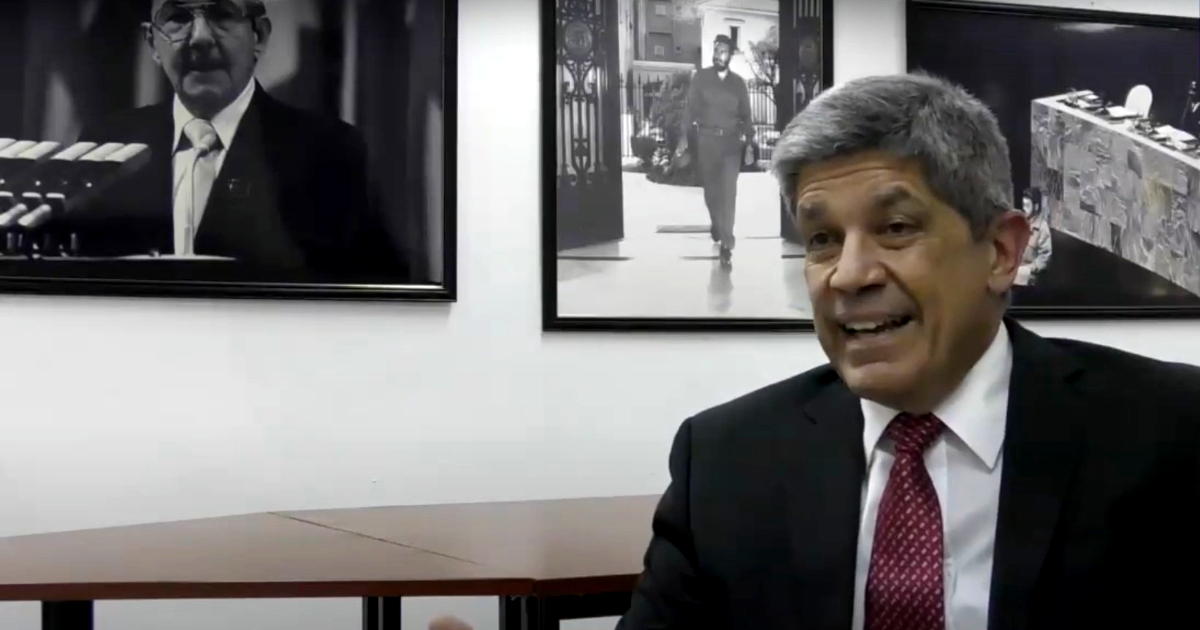
The Cuban regime affirmed that there is no real change in the bilateral relations between Cuba and the United States.
This was stated in an interview with official media by the Cuban vice chancellor. Carlos Fernández de Cossío, who accused the Biden administration to maintain the same policy towards Cuba that Donald Trump.
“We do not see a real change in bilateral relations,” said the diplomat, indicating that for the change to be “significant,” the United States would have to make moves such as withdrawing Title III of the Helms-Burton law, among other concessions. to Havana.
Furthermore, according to Fernández de Cossío, the president Joe Biden It should remove Cuba from the list of State sponsors of terrorism, delete the list of restricted entities, stop the pursuit of fuel that affects the economy, or cease its pursuit of the Cuban government's medical cooperation.
“All of these are policies that bear Trump's seal, but that the current US government continues to apply, without even justifying why it does so,” said the diplomat without alluding to the arguments put forward by the current government to their decision making.
For the Cuban vice chancellor, all of this pursues nothing more than a goal that obsesses the American political class: “subversion in Cuba”.
The nationalizations without compensation, the support of the Cuban regime to narco guerrillas, to terrorists wanted by third countries, added to its alignment with the confrontation policies of allies such as Russia or Iran, were not mentioned by the official; nor the global scandal that a model of “medical cooperation” represents, criticized by governments and international organizations for “modern slavery”.
In relation to the immigration agreements and the mass exodus of hundreds of thousands of Cubans in the last year, Havana throws the ball out and blames Washington for a unprecedented migration crisis in the history of relations between both countries.
“The United States encourages theft and air or naval piracy as an effective way to emigrate,” denounced the diplomat, evidencing the Cuban regime's displeasure for the granting of asylum to the pilot Rubén Martínez Machado, who arrived in that country aboard an AN-2 small plane stolen from Cuba.
By not returning the young pilot to the Cuban authorities, “the US government becomes an accomplice and participant in an act of kidnapping,” said Fernández de Cossío. While the United States “adopts measures and actions of this type, it cannot be said that it has the real purpose of putting an end to irregular emigration,” he concluded.
Insisting once again on his argument, the Cuban vice chancellor indicated that “far from responding to its national interests in immigration matters, what weighs on the US is political subversion in Cuba.”
Without alluding to the growing protests and demands of Cuban civil society, focused on a change that brings rights and freedoms on which to build a society with prosperity and justice, Fernández de Cossío criticized the US demands for free political prisoners in Cuba and end the repression against free expression, activism and opposition in Cuba.
“Now he intends to ask Cuba for gestures, and that Cuba has to take a step. It is an unreasonable claim. "Why is it going to be up to Cuba, which has not committed any hostile action against the United States, to correct the current state of relations?" asked the vice chancellor, who is intimately familiar with the historic conversations between both countries. in which it was agreed not to use massive and forced migration as a “hostile act”.
Playing once again the role of a sovereign State on the international stage - while exercising power in an illegitimate, totalitarian and violent manner - the senior official of the regime's chancellery was outraged and sarcastic with Washington's demand for the release of the prisoners. politicians, whom Fernández-Cossío only called “prisoners.”
In another sample of the importance that the United States attaches to the human rights situation in Cuba, the diplomat said that the bilateral dialogue “entails specific requests, such as that Cuba release prisoners.”
“What do the prisoners in Cuba have to do with the persecution of fuel?… All of these are pretexts historically used by the United States when it does not want to act,” stated the representative of a regime that shook to its foundations when President Barack Obama decided to act.
What do you think?
COMMENTFiled in: